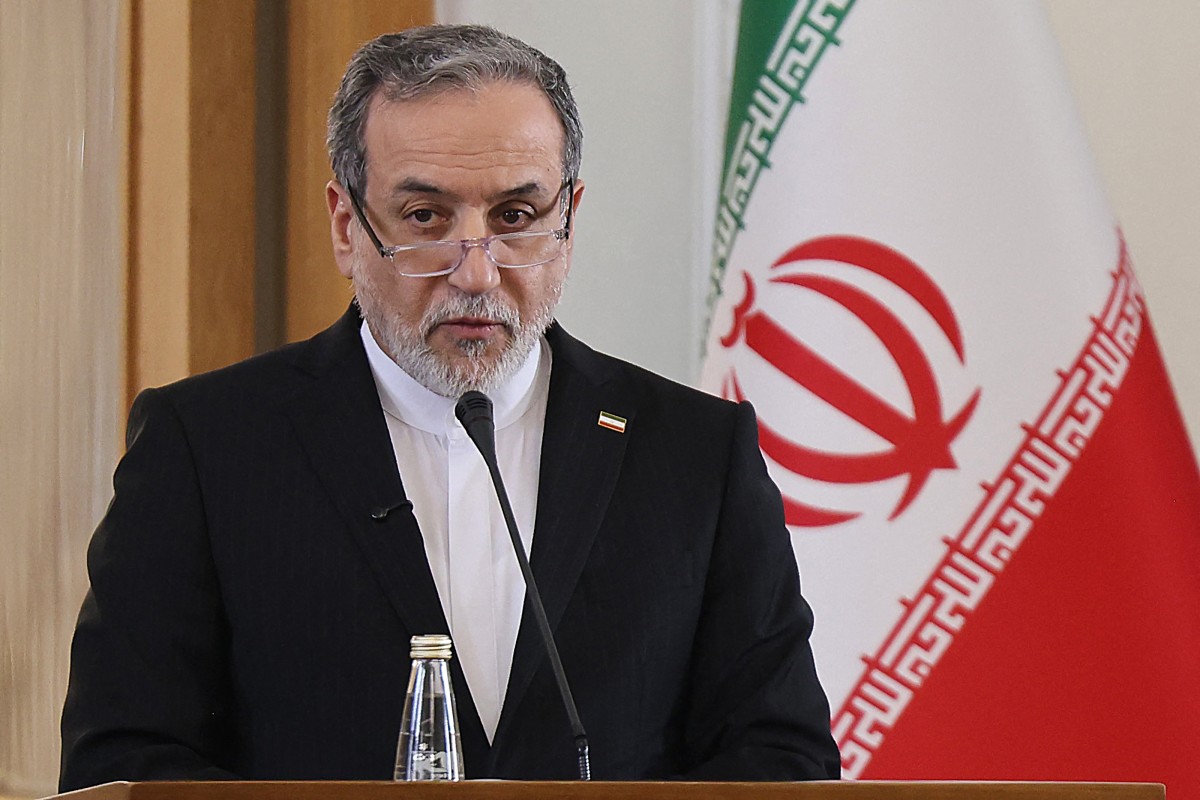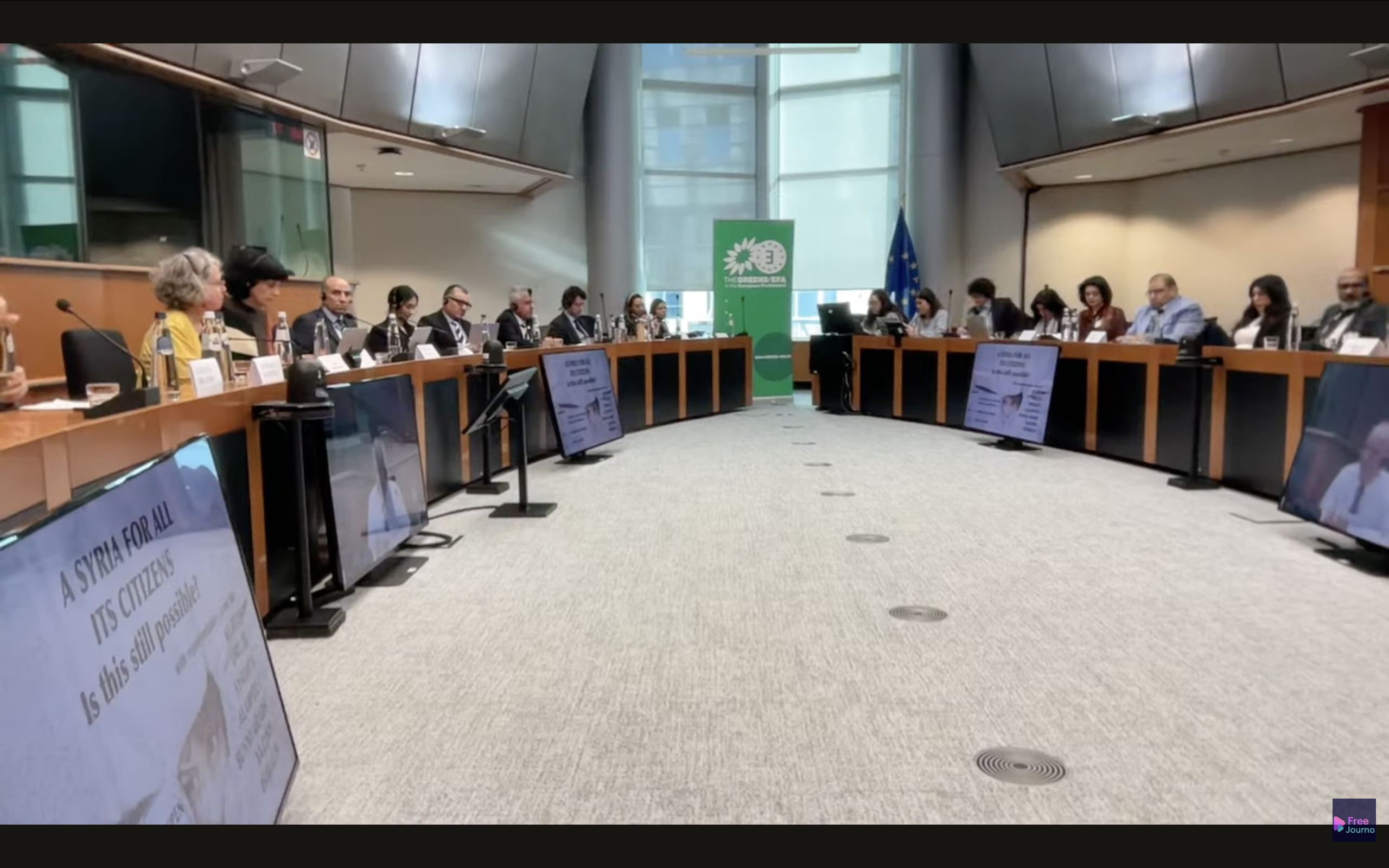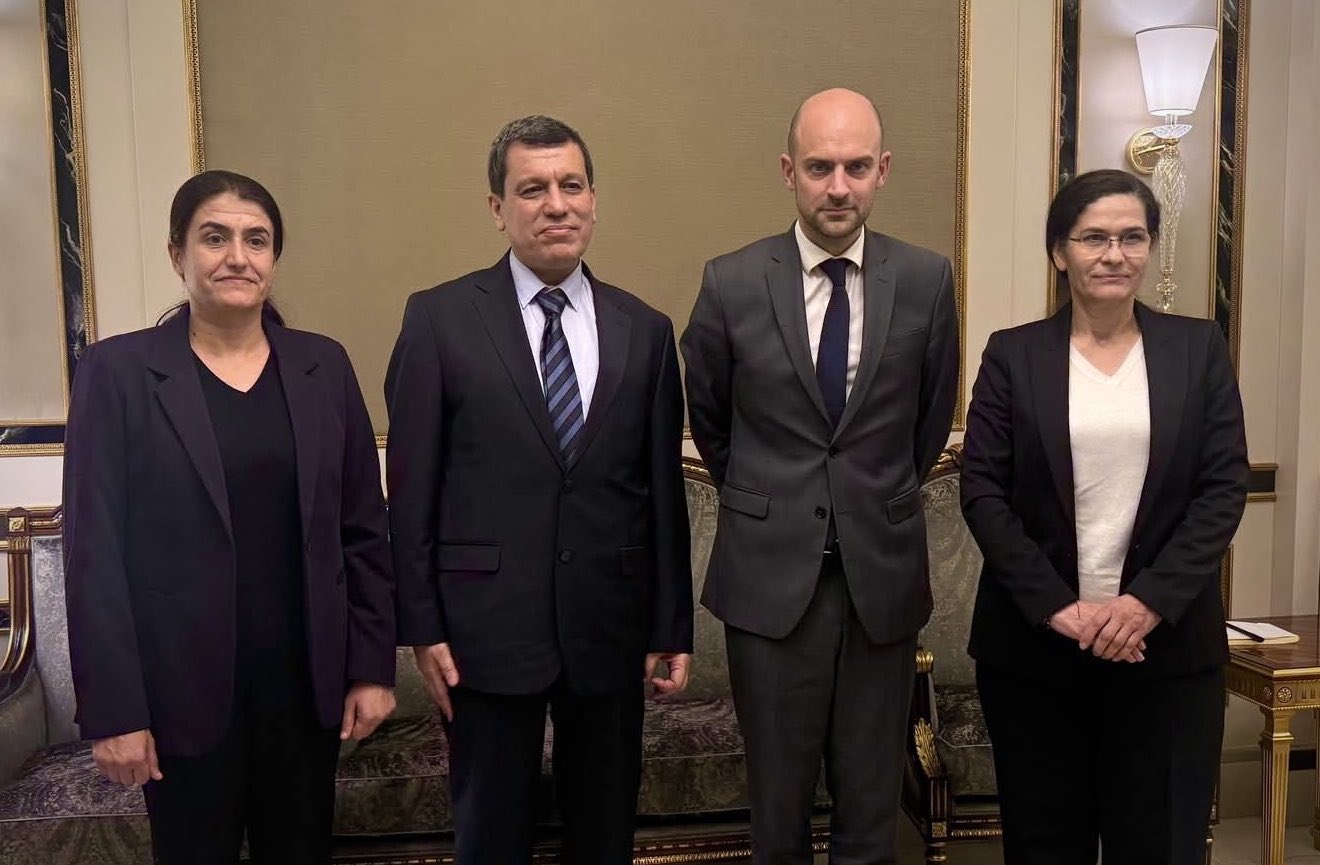Russia and Iran under the Return of Sanctions: Tactical Partnership or Strategic Alliance?
Picture Credits: Wikimedia Commons/ The Official Website of Ali Khamenei
A month after the snapback mechanism was activated to reimpose the UN Security Council sanctions on Iran, Russia announced it would continue its military and technical cooperation with Tehran.
In a press conference in mid-October, Russian Foreign Minister Sergey Lavrov said that Moscow sees no limits on providing Iran with military needs and that all of its actions are “within the framework of international law”.
Two days after Lavrov’s speech, Ali Larijani, the secretary of Iran’s Supreme National Security Council, made an unexpected trip to Moscow to meet with Vladimir Putin. According to Russian media, he delivered a written message from Iran’s Supreme Leader, though the details of its content are still unknown. In its aftermath, a Kremlin spokesperson said that Russia is ready to expand cooperation with Iran in all fields, adding that the relations between the two countries are developing “very dynamically” – especially in a period where the region is facing security crises and pressure from the West is increasing.
In early October, G7 foreign ministers issued a joint statement demanding that the renewed sanctions be fully and globally respected. Additionally, the European Union and some European governments reimposed arms sanctions and banned the import of crude oil, natural gas, metals, and energy-related equipment from Iran.
Despite all this, Russo-Iranian diplomatic contacts are continuing, even as Western countries warn against any arms sales to Iran, calling it a violation of UN resolutions.
Russia and China, however, disagree with this interpretation. They consider these measures “legally and procedurally flawed”, arguing that the current situation is not due to Iran’s actions; rather, according to them, it is the result of the United States and the Europeans disrupting the implementation of the nuclear deal. They argue that Western governments’ interpretation of the UN Resolution 2231 – the resolution on Iran’s nuclear issue – is discriminatory.
On this topic, Dr. Mohammad Ghaedi, a lecturer in international relations at George Washington University, says that Russia and China’s disagreement with the West is both legal and political. Speaking to The Amargi, he stated that Moscow is using the “spirit of the nuclear deal” to justify its support for Iran, while the West relies on the literal text of the resolution. As a result, “A dangerous shift is happening from international law to geopolitical competition,” where power determines the result, rather than legal norms.
Recent events are also a factor in Russia and Iran’s continued and strengthening relationship, as crises like the war in Ukraine, the fighting in Gaza, and the collapse of the Assad regime in Syria – where Iran and Russia have had continued military presence and major political influence – have placed the two countries in vulnerable geopolitical positions.
Now, the two countries are looking find their new places within the international order. This is evident by their increasing economic cooperation through BRICS and financial systems outside of SWIFT, as well as the deepening military cooperation between Tehran and Moscow. However, beyond these political, economic, and diplomatic developments, what alarms the West is the growing arms cooperation that would contribute to Iran’s existing missile and drone capabilities.
In recent decades, Iran has developed one of the fastest and strongest missile and drone programs in the region. With the potential access to modern Russian fighter jets, some Western analysts believe Tehran could move closer to a new form of “multi-layered deterrence,” which could change the balance of power in the Middle East.
Iran has signed a six billion Euro deal to buy forty-eight Sukhoi Su-35 fighter jets, equipped with advanced electronic warfare systems
These concerns only increased after a hacker group leaked documents detailing one of Iran’s biggest arms deals since the 1979 revolution. The leaked documents, from the Russian company Rostec, show that Iran has signed a six billion Euro deal to buy forty-eight Sukhoi Su-35 fighter jets, equipped with advanced electronic warfare systems. These aircraft are planned to be delivered by the end of 2028.
Western countries and Israel, however, worry that if these upgrades combine with Iran’s missile and drone programs, it might increase Tehran’s regional deterrence over time.
At a glance, these deals look like an attempt to modernize Iran’s aged air force, which contains many decades-old F-14s, F-4s, and MiG-29s and which has suffered due to sanctions and lack of spare parts. The need for an upgrade was clear during the Twelve-Day War between Iran and Israel in June 2025, when Israel’s air superiority showed the vulnerability of Iran’s air force. Now it seems Tehran wants to bridge this gap, and Moscow is using this opportunity to strengthen its influence and military cooperation.
Western countries and Israel, however, worry that if these upgrades combine with Iran’s missile and drone programs, it might increase Tehran’s regional deterrence over time. But while this concern remains, some analysts believe that the real effect of this cooperation can only be judged with time.
Dr. Farzin Nadimi, a senior defense researcher at the Washington Institute, told The Amargi that the short-term impact of these contracts is “more psychological than practical.” He explained that, “If those rumored or unconfirmed deals really go through and lead to actual deliveries, these weapons could fix some problems in Iran’s air defense in the long term,” but also added, “what Russia is giving Iran will not alone change the balance of power or challenge Israel’s military advantage.”
Dr. Mohammad Ghaedi also argued that Russia’s cooperation with Iran is mostly temporary and based on its changing interests. Even though Russia has cooperated with Iran in areas like nuclear energy and satellite launching, it has never fully supported Iran against Israel. He believes that if Moscow reaches an agreement with the U.S. or Europe, it may reduce or end its cooperation with Iran and become less of an ally, as it did in the past when it voted for six UN resolutions against Tehran.
These uncertainties in the Russia-Iran partnership are also visible inside Iran. A key moment came when Sergey Lavrov publicly blamed former foreign minister Mohammad Javad Zarif for agreeing to the snapback mechanism, which allowed the return of international sanctions. Lavrov’s remarks directly supported the narrative of Iran’s ruling faction, which has long accused the Rouhani administration and Zarif of being “too close to the West” and trusting “Western-dominated institutions.”
There are signs that the growing closeness between Tehran and Moscow is more than just a temporary move
Zarif denied Lavrov’s claims and said that Russia intentionally blocked Iran’s relations with the West during the 2015 nuclear talks to keep its influence in Tehran. But instead of questioning Moscow’s motives, Zarif’s comments triggered stronger attacks against him. Mohammad-Bagher Ghalibaf, Iran’s parliament speaker, criticized Zarif’s remarks as “against national interests” and “harmful to Iran’s strategic relations with Russia.”
There are signs that the growing closeness between Tehran and Moscow is more than just a temporary move, as statements from the Russian Ambassador to Iran show. The strengthening relationship looks like a deliberate attempt by two pressured countries to redefine their place in a new multipolar world. However, from the Western point of view, this cooperation might destabilize the traditional power balance in the Middle East, especially if it grows into deeper military, economic, or regional cooperation. And such a development could challenge the United States’s plans, as well as those of its allies.
…the cooperation between Iran and Russia is still based on temporary needs and changing national interests
Still, Dr. Ghaedi maintained that, “Long-term alliances in international relations are rare and usually limited to examples like NATO or the U.S.-Israel relationship.” He believes that despite the growing ties, the cooperation between Iran and Russia is still based on temporary needs and changing national interests, making it unlikely to become a solid and lasting strategic bloc.
Ammar Goli
Ammar Goli is an investigative reporter whose work focuses on the relationships between mafia groups and totalitarian governments, and on the Kurdish issue in the Middle East. He has contributed to various media outlets, including BBC Farsi, Iran International, and Radio Ferda, in Persian, Kurdish, and German, drawing on his deep understanding of the political and social dynamics of the region. At The Amargi, he writes specifically about East Kurdistan and Iran, offering valuable insights and analysis of current events.




